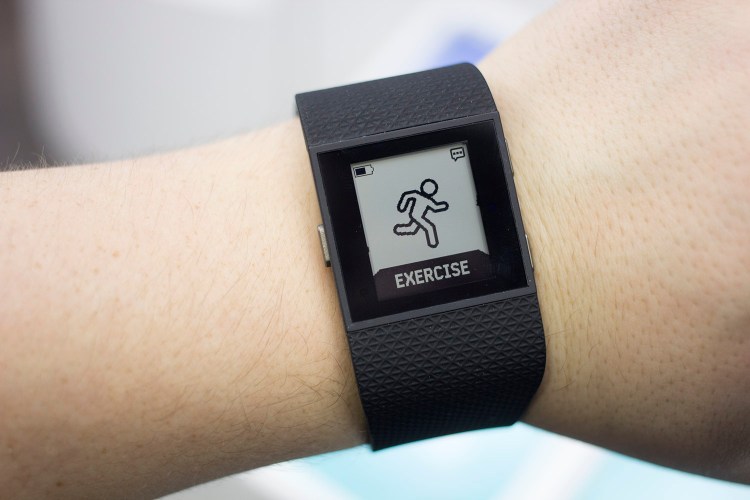Welp, Fitbit is going public.
Today the company, which makes fitness-tracking things like the wristband pictured above, filed for a $100 million IPO. In the filing we learned all sorts of things about Fitbit, like that it sold 10.9 million devices in 2014 — and it made $745.4 million doing so. Our own Mark Sullivan pulled out all the juicy details; please read his story right here.
Among the many details we’re still combing over, you’ll find a list of which companies Fitbit considers its chief competitors, including Garmin, Jawbone, Misfit, Adidas, Under Armour, Apple, Google, LG, Microsoft, and Samsung.
Here’s what Fitbit says about its competition — namely, Apple [emphasis ours]:
The connected health and fitness devices market has a multitude of participants, including specialized consumer electronics companies, such as Garmin, Jawbone, and Misfit, and traditional health and fitness companies, such as adidas and Under Armour. In addition, many large, broad-based consumer electronics companies either compete in our market or adjacent markets or have announced plans to do so, including Apple, Google, LG, Microsoft, and Samsung. For example, Apple has recently introduced the Apple Watch smartwatch, with broad-based functionalities, including some health and fitness tracking capabilities.
The wearables industry — mostly smartwatches and fitness band-type things — is in constant flux right now. In fact, that’s what makes the space interesting. Earlier this year, I tried on 56 different wearables in a single day, and only four months later the entire industry looks different. It looks different because of one company: Apple.
Fitbit should be lauded for its sincere focus on fitness. The Fitbit Charge costs $130, monitors how much (or little) I move, lets me track exercise, pings me when I have a call, and wakes me up in the morning. That’s a pretty great deal, when you compare it to a $349 (or, gulp, $17,000) Apple Watch.
But, even in the Apple Watch’s early days, it’s all too easy to imagine that an iPod moment — remember when Apple wiped out the MP3 player industry? — may be imminent. Fitbit, for all its strengths, kinda sucks at software when you compare it to Apple. The company’s apps are buggy, just like its fitness-focused competitors (Withings, Garmin, etc). And how many of its customers have already given up on their Fitbit and don’t plan to go back?
Maybe this is why Fitbit needs the cash it’ll get from going public. Surely the company realizes it’s about to battle it out with the most valuable company on earth.
Stepping back, it’s humorous that Fitbit just about downplayed how dangerous a competitor Apple is, identifying it as a risk factor among a struggling Jawbone and Microsoft’s funny little Band. Many have already identified the Apple Watch as a death knell for Fitbit, but the company seems to think otherwise. And perhaps its new investors will, too.
VentureBeat's mission is to be a digital town square for technical decision-makers to gain knowledge about transformative enterprise technology and transact. Learn More

